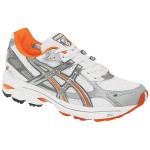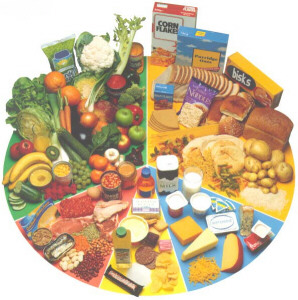A Guide To Carbohydrates Loading For Runners
One of the most inexpensive sports I can think of and yet provides the necessary workout for your body, as well as your heart, is running. Encountering an increase in carbohydrates intake is a definite thing. However, savvy runners will know how to control the amount they consume and balance it with their workout so that they do not end up  ruining their initial plans and end up putting on more weight in the process.
ruining their initial plans and end up putting on more weight in the process.
When carbohydrates is consumed into our body, it is converted into glycogen and transported to our muscles to be used as fuel. Runners, especially those who clock extensive mileage, will require greater amounts of carbohydrates to ensure their performance remains in tip top condition.
Here's how carbohydrates loading is usually done, about a week prior to a major endurance event like a marathon, training is usually reduced while carbohydrates intake is increased greatly in the last 2 to 3 days. If you get this right, you would have an advantage over others.
So now we have some idea of how carbohydrates is being used in our body as fuel. You may start to wonder, "I want to be in tip top performance, so  more fuel equals better performance". Wrong! Your body cannot store unlimited amounts of carbohydrates, we all have a limit, so there is no point in eating excessively. If there is a surefire way to get fat, eating like this will definitely do so and jeopardize your running more sooner than you think. Just imagine you are like a car, even the vehicle cannot have an unlimited storage capacity for fuel.
more fuel equals better performance". Wrong! Your body cannot store unlimited amounts of carbohydrates, we all have a limit, so there is no point in eating excessively. If there is a surefire way to get fat, eating like this will definitely do so and jeopardize your running more sooner than you think. Just imagine you are like a car, even the vehicle cannot have an unlimited storage capacity for fuel.
Carbohydrates loading should only be reserved for that one big event you peak for during the year. However, it is not that easy to execute. You will need to consume 10 to 12 grams of carbohydrates per kilogram of weight 2 to 3 days before the race. For an average male weighing 70 kilograms, that can amount to a whopping 2700 calories!
If you are a experienced runner and clock a extensive mileage every week, try to eat more carbohydrates on a regular basis instead of watching your carbohydrates intake a week before your race. Most people ingest 5 to 6 grams of carbohydrates per kilogram of weight per day. Depending on how you run, you may increase the intake to around 10 grams of carbohydrates.
Nutritious foods that will aid you in your workouts that you may include in your diet can be a variety of wholemeal, multi-grain products such as wholemeal breads, wholemeal pastas, multi-grain breads, multi-grain rice...etc that provide energy consistently throughout the day as it will take a longer time for the food to digest because of their lower glycemic index, and carbohydrates rich products such as white bread, rice, pasta, potatoes, bagels, noodles, plain cereal...etc can be taken immediately after your workout to replace the energy loss. A good way to replace some of the food if you cannot stomach the excess carbohydrates, would be meal replacements in liquid form such as supplement shakes, sweet stuff like honey, jam, fruit smoothies..etc However they should be taken in moderation do not load on it just because you think you have lost it while exercising. That would be a sure way to pile up the fats and sugar which cannot be digested by your body.
rice...etc that provide energy consistently throughout the day as it will take a longer time for the food to digest because of their lower glycemic index, and carbohydrates rich products such as white bread, rice, pasta, potatoes, bagels, noodles, plain cereal...etc can be taken immediately after your workout to replace the energy loss. A good way to replace some of the food if you cannot stomach the excess carbohydrates, would be meal replacements in liquid form such as supplement shakes, sweet stuff like honey, jam, fruit smoothies..etc However they should be taken in moderation do not load on it just because you think you have lost it while exercising. That would be a sure way to pile up the fats and sugar which cannot be digested by your body.
Preparation for the main running event is important, it is also crucial to plan for recovery as well. This not only applies to post marathon race, but your daily running as well. You won't want to end up feeling lethargic every time after your workouts which should not be the case in the first place. The key to quick recovery will depend on how much time you allow your body to recover. If you have got less than 8 hours before you hit your next running session, an advice is to get carbohydrates into your system within 1 hour. However, if your next run is after 24 hours or 2 days later, planning of meals can be done at own leisure. Just remember that carbohydrates are best absorbed by the body within an hour after your workout.






